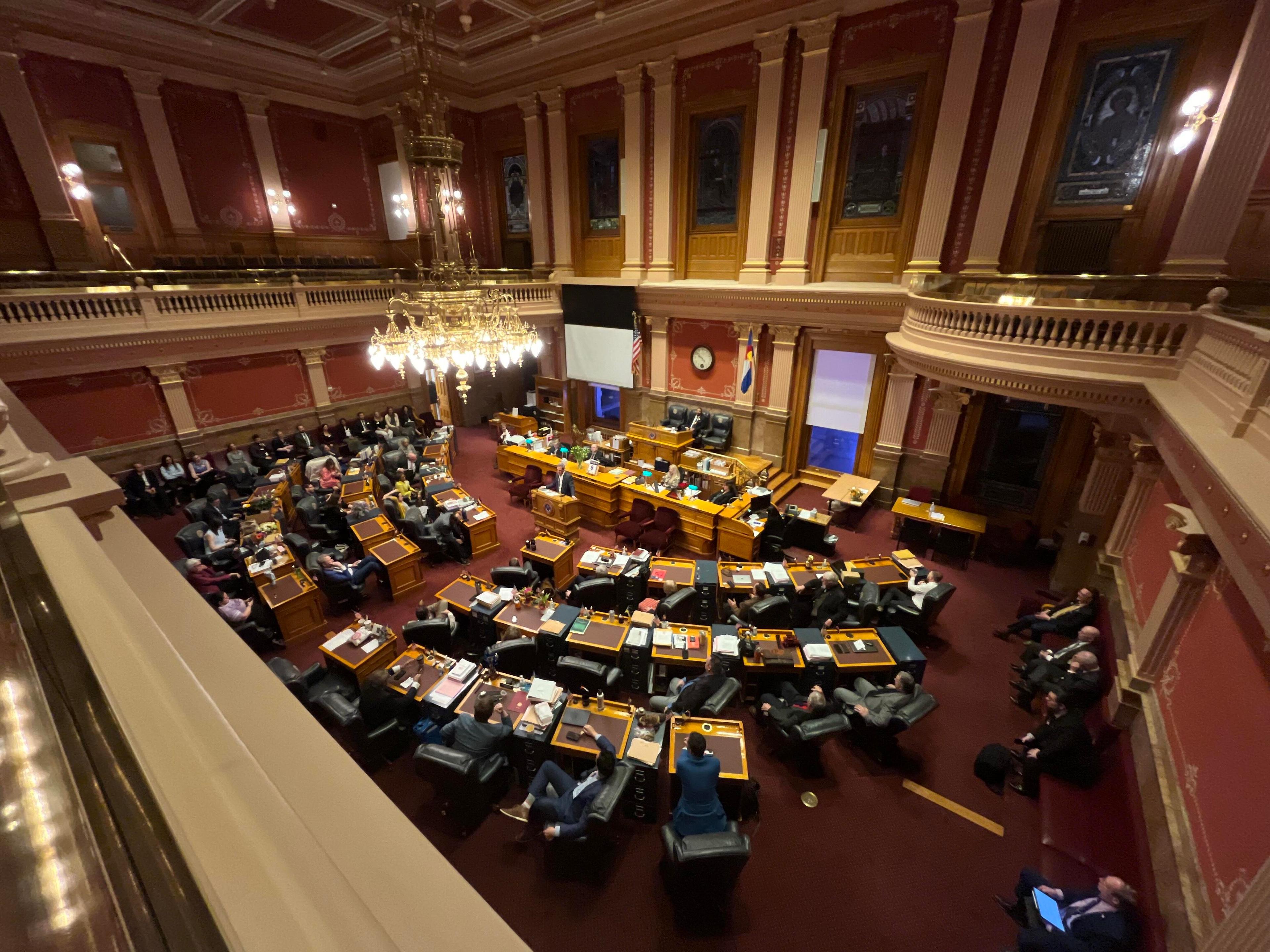

A Denver District Court Judge on Tuesday sided with Senate Republicans in their effort to slow down the pace of Democratic-backed legislation this session.
The eight page preliminary injunction says Senate leaders cannot use computers to read a bill at unintelligible speeds to fulfill a request that it be read at length, a parliamentary tactic Republicans can use to prevent other Senate business from happening.
Specifically, the judge found that Senate President Leroy Garcia and Senate Secretary Cindi Markwell’s use of five computers to read a 2,000-page bill at top speed at 650 words per minute to fulfill a Republican demand violated state law.
“The Court finds that the actions of the Senate Secretary and the Senate President causing different sections of HB 1172 to be read simultaneously by multiple computers at an incomprehensible speed violated the article V, § 22 of the Colorado Constitution. The Court concludes that the Plaintiffs have demonstrated a reasonable probability of success on the merits,” ruled Judge David Goldberg. Read the decision in full.
So far at #coleg today...
1) Senate Rs demand a 2000-page bill be read at length in order to slow down the D majority.
2) Ds respond by having ***five computers*** read it, cutting the time needed from days to hours.
Here's how that sounds. Brace yourself. #copolitics pic.twitter.com/7vWb5SDOG9
The judge said his decision preserves the status quo until a final ruling could be reached.
Any member of the legislature can request that a bill be read at length. On March 11, Republicans, angry at how quickly Democrats are moving a major oil and gas bill through the legislature, invoked that power just as the Senate was about to vote on a different measure, HB 19-1172, a bipartisan technical revision to a large number of Colorado laws. The request ground all other work by the chamber to a halt.
Eventually, Democrats transferred the reading of the bill from human staff to a bank of computers set to run several times faster than normal human speech. Senate rules do not say anything explicitly about whether a bill reading must be understandable, but the court said it’s in the public interest that the bill be “read in a comprehensible fashion, in full, prior to a vote.”
Senate Minority Leader Chris Holbert, one of the Republicans who filed the lawsuit said he hoped the decision would mark the beginning of a new discourse with Senate President Garcia, who he called ”a good man and thoughtful leader.”

“We’ve heard from constituents — from Pueblo to Greeley and from Sterling to Montrose — who are disappointed in the hasty speed in which legislation has been driven through the process, and Colorado’s Republican Senators will continue to be their voice and utilize our constitutionally-derived powers to ensure those voices are heard loud and clear,” Holbert said.
President Garcia said Tuesday’s decision was a loss for Colorado. He accused Republicans of being obstructionist and using political tactics.
“I have a deep respect for the process and the opinion of the court, and will uphold their decision; however, the reading of this 2,000-page bipartisan bill means that our work trying to improve the lives of millions of Coloradans grinds to a halt,” Garcia said.
Democratic leaders estimate it would take nearly a week to read the 2,000-page bill out loud at normal speed. The Senate majority leader in charge of the chamber's calendar said he wasn’t likely to bring the bill back up for debate.
“I’m not interested in giving them a tool for obstruction,” Majority Leader Steve Fenberg said.
Republicans could still deploy the tactic on other measures. The legislature is required to conclude its work for the year by early May.








